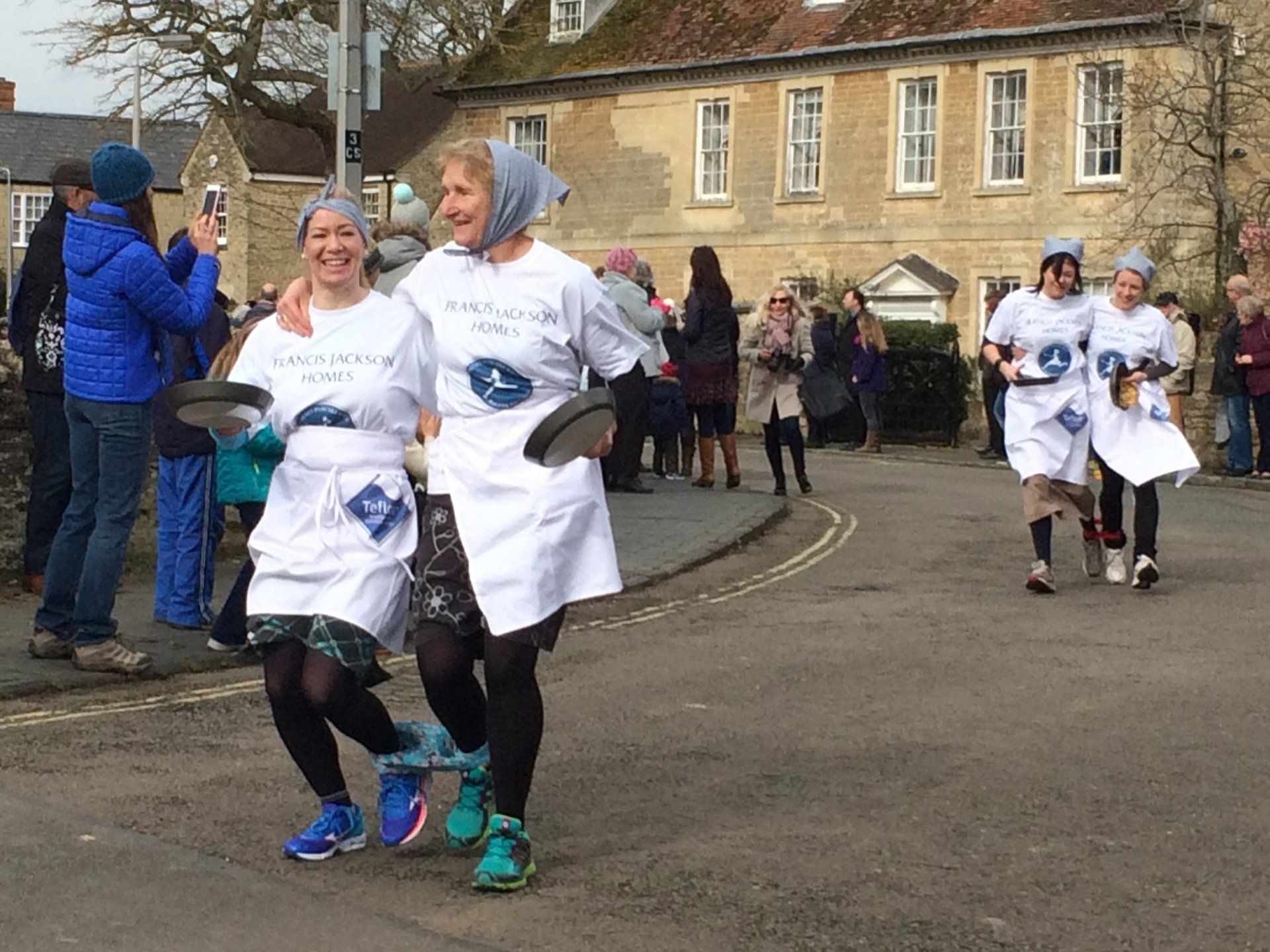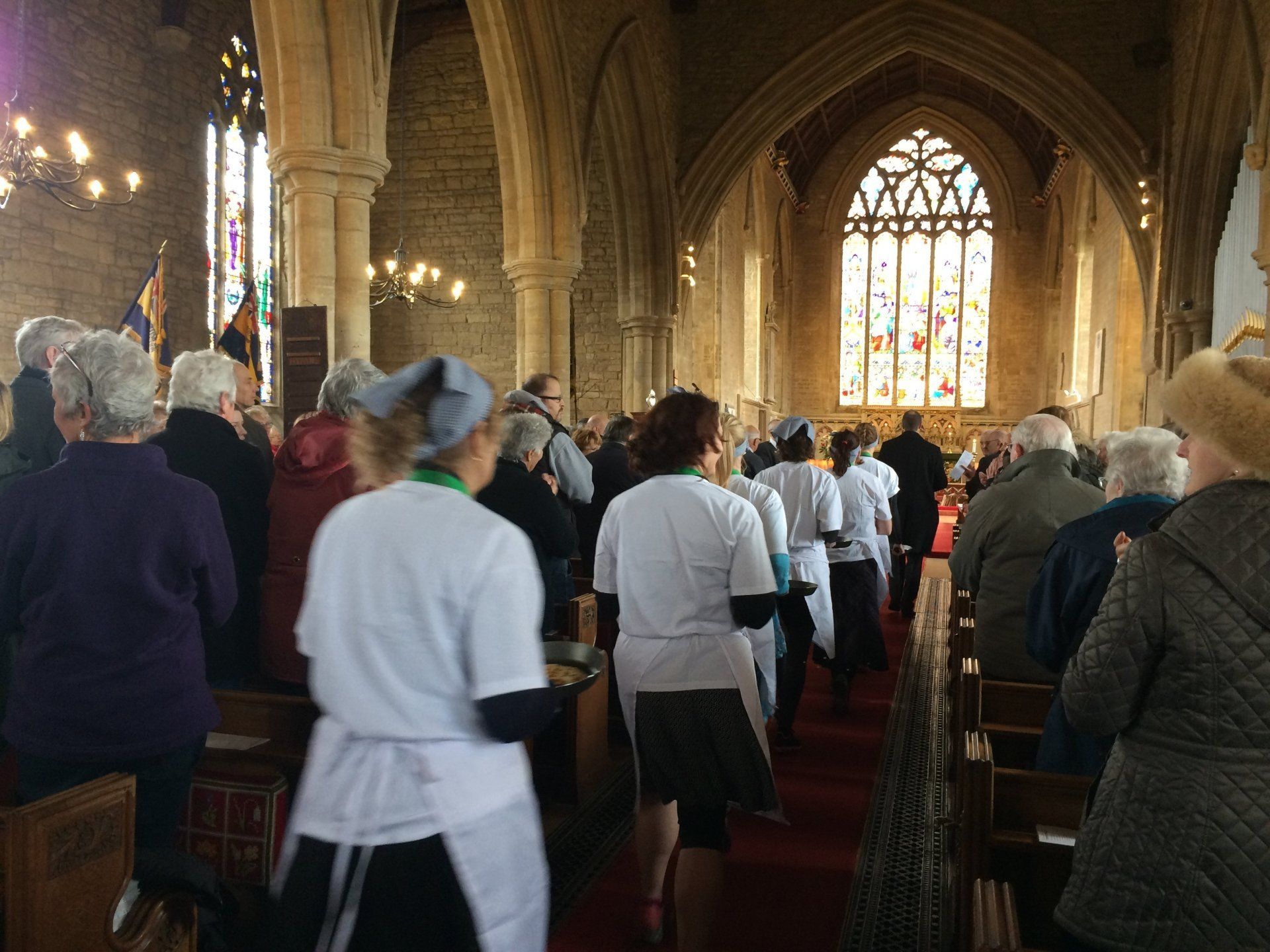Flipping Pancakes

For 364 days of the year the rural market town of Olney in Buckinghamshire most passes mostly unnoticed by the wider world but on Shrove Tuesday – the day before Lent - media and visitors converge to witness the women of the town dash around the streets flipping pancakes. Traffic stops as competitors take part in the 415 metres dash from the Market Place to the Parish Church of St Peter’s and St Paul’s - the home of the hymn Amazing Grace and finish line of the world famous Olney Pancake Race.
The term shrive, from old English, means to hear an acknowledgement of a person’s sins, to assure them of God's forgiveness, and to give them spiritual advice. On this day, Christians are encouraged to make a special point of self-examination, considering areas for repentance, spiritual growth and necessary adjustments to lifestyle for which they need God’s help – or shrift.
Shrove Tuesday has also been called also traditionally called Fat Tuesday (in French, Mardi=Tuesday; gras=fat) because on that day a thrifty housewife uses up the fats that she has kept around for cooking, but is unable to use during the Lenten fast. The first Olney pancake race was run in 1445, a time when pancakes were a popular dish and a standard way of using up fat; hence the now popular name of Pancake Day.
No one is certain of the origins of the now infamous pancake race. One tradition tells of a harassed house wife who lived on Olney High Street who on hearing the shriving bell, dashed off to the Church still unwittingly clutching her frying pan containing a pancake. Another theory is that the gift of pancakes may have been a form of bribe to the Ringer, or Sexton that he might ring the church bell sooner; as the bell not only summoned people to the shriving service but also signalled the beginning of a day’s holiday.
The tradition continued over the centuries, and while many other local customs died out - and the race itself may have lapsed at various times – it was never entirely forgotten. It is recorded for example that a race took place during the War of the Roses
After a lapse during the Second World War, the race was revived in 1948 by the then Vicar of Olney, the Reverend Canon Ronald Collins. While clearing out a vestry cupboard he came across some old photographs, which had obviously been taken in the 1920s and 30s of women running with frying pans. Fired with enthusiasm, he called for volunteers and in response thirteen runners appeared on Shrove Tuesday that year.
In 1950 the race went international when the town of Liberal in Kansas decided to run their own version after seeing press photographs of the Olney race. The two towns now compete annually and race times are compared and prizes exchanged. This year once again we were joined by visitors from Kansas to witness the event, although a technical hitch here in the UK prevented a comparison of race times for the first time.
To qualify today, women must be at least eighteen years old and have lived in Olney for at least three months immediately prior to the event or, if living away, have a permanent home in the town. For the race they must don a skirt, apron and head covering (usually a scarf) and are permitted to hobble themselves to a partner as a three legged entry.
The festivities begin with a pancake breakfast and children’s races then at 11.55 a.m. the church bells ring to signal the start of the main adult race. Runners are required to toss their pancakes at the start of the race, and then again at the end and the first over the finish line is greeted with the Kiss of Peace and the words "The peace of the Lord be always with you".
At the end of the race, runners, officials, townspeople and visitors pour into the Parish Church for the Shriving Service, which this year was led by Bishop David Jennings, who spoke movingly of the joy and challenge of Christian life. Once again the exquisite 13th century church of St Peter’s and St Paul’s was overflowing, and hundreds of voices rose in song to the iconic words of former curate John Newton, ‘Amazing grace how sweet the sound, that saved a wretch like me.’
It is such a privilege and great fun to be able to take part in such an ancient tradition but it is even more wonderful to see how, after six hundred years, flipping pancakes can still lead people into an encounter with God.

Kate Nicholas is author of Sea Changed, which is available at Christian book stores throughout the UK, Waterstones and online at Amazon and Eden.co.uk
